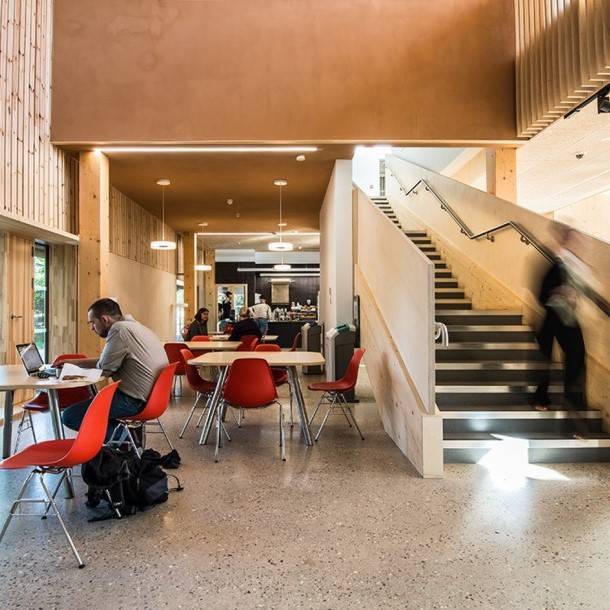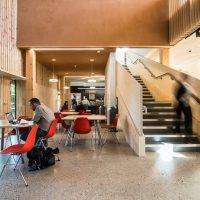November 10, 2016
The changing workplaces of Australia’s law firms; more in common with hotels than offices 0
 Features such as baristas, sky terraces and fine dining will continue a process of transformation at the workplaces of Australia’s leading law firms over the next few years, claims a study by Melbourne based architecture practice Bates Smart. The report claims that the legal workplaces of today are are already unrecognisable compared to what was considered typical yesterday, having more in common with a five star hotel than a traditional office. Bates Smart predicts an even greater shift towards flexibility, collaboration and hospitality from legal firms in the future with the publication of four key findings in its new whitepaper, The Legal Workplace 2020, The report analyses trends in over 135,000 sq. m. of legal practice workplaces and draws conclusions that are indicative of key trends for law firms and the wider market alike.
Features such as baristas, sky terraces and fine dining will continue a process of transformation at the workplaces of Australia’s leading law firms over the next few years, claims a study by Melbourne based architecture practice Bates Smart. The report claims that the legal workplaces of today are are already unrecognisable compared to what was considered typical yesterday, having more in common with a five star hotel than a traditional office. Bates Smart predicts an even greater shift towards flexibility, collaboration and hospitality from legal firms in the future with the publication of four key findings in its new whitepaper, The Legal Workplace 2020, The report analyses trends in over 135,000 sq. m. of legal practice workplaces and draws conclusions that are indicative of key trends for law firms and the wider market alike.





































October 4, 2016
Motherhood or livelihood? Pregnancy discrimination in the workplace 0
by Tar Tumber • Comment, Legal news, Wellbeing, Workplace
Recent research by the Commons Women and Equalities Committee suggests that around 54,000 expectant and new mothers have no choice but to leave work due to pregnancy discrimination or concerns over the safety of their children; and shockingly, this figure has doubled in the last decade alone. Other research carried out by the Equality & Human Rights Commission (EHRC) and the former Department for Business, Innovation and Skills shows that despite 77 percent of working mothers reporting potentially discriminatory or negative experiences, only 28 percent raised the issue with their employer, and less than 1 percent pursued a claim through the tribunal system. As a mother of two young children, this is a topic very close to my heart. I have worked in HR for over 18 years now, and advised on all manner of employee relations issues and know from personal experience that being pregnant and suffering discrimination or redundancy is not at all unusual.
More →